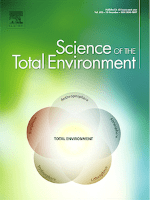
Science of The Total Environment
Scope & Guideline
Transforming Environmental Challenges into Opportunities
Introduction
Aims and Scopes
- Environmental Pollution and Contamination:
Research on the sources, effects, and mitigation of various pollutants, including heavy metals, pharmaceuticals, and microplastics, across different environmental compartments such as air, water, and soil. - Ecological and Health Impacts:
Studies examining the effects of environmental changes and pollutants on human health, wildlife, and ecosystem functions, often incorporating epidemiological approaches and toxicological assessments. - Climate Change and Biodiversity:
Investigations into how climate change alters ecological dynamics, species interactions, and biodiversity, including adaptations of flora and fauna to changing environmental conditions. - Sustainable Practices and Technologies:
Development and assessment of innovative technologies and practices aimed at enhancing sustainability, such as bio-remediation methods, waste management strategies, and resource recovery techniques. - Hydrology and Water Quality:
Research focusing on water resources, including hydrological modeling, water quality assessment, and the impacts of land use and management practices on aquatic ecosystems. - Soil Health and Management:
Studies on soil properties, microbial communities, and the effects of agricultural practices on soil health, emphasizing sustainable land-use strategies.
Trending and Emerging
- Microplastics Research:
There is a notable increase in studies addressing the sources, effects, and remediation strategies for microplastics, reflecting growing public concern and regulatory scrutiny over plastic pollution. - Antibiotic Resistance and Environmental Health:
Research on the spread of antibiotic resistance through environmental pathways, particularly in wastewater and agricultural runoff, has gained traction, emphasizing the interconnectedness of human health and environmental integrity. - Climate Resilience and Adaptation Strategies:
Emerging studies are focusing on adaptive management practices that enhance ecosystem resilience to climate change, including the restoration of degraded ecosystems and sustainable land use. - Wastewater-Based Epidemiology:
The application of wastewater analysis to monitor public health trends, especially during the COVID-19 pandemic, has seen a significant rise, showcasing its utility in early detection of disease outbreaks. - Integrated Environmental Management Approaches:
There's a growing emphasis on holistic approaches that integrate various environmental and socio-economic factors, promoting sustainable development and ecosystem services. - Emerging Contaminants:
Research on contaminants of emerging concern, such as pharmaceuticals and personal care products, is becoming increasingly prevalent, reflecting the need to understand their impacts on ecosystems and human health.
Declining or Waning
- Traditional Agricultural Practices:
Research on conventional farming methods has waned as there is a growing emphasis on sustainable agriculture, agroecology, and regenerative practices that enhance biodiversity and ecosystem services. - Single-Pollutant Studies:
The focus on isolated studies of single pollutants is decreasing as interdisciplinary approaches that consider multiple contaminants and their interactions are becoming more prevalent. - Static Environmental Assessments:
There is a decline in studies that provide static snapshots of environmental conditions without considering dynamic changes and long-term trends, as researchers increasingly recognize the importance of temporal and spatial variability. - Historical Pollution Case Studies:
Research centered on historical pollution events is less frequent, as current studies focus more on real-time assessments and predictive modeling for future scenarios. - Local Case Studies:
The trend is shifting away from localized case studies towards more global and regional assessments that can inform broader environmental policies and practices.
Similar Journals

International Journal of Ecology & Development
Connecting Research with Real-World Environmental ChallengesThe International Journal of Ecology & Development is a pivotal platform for interdisciplinary research, focusing on the intricacies of ecological processes and their intersection with socio-economic development. Published by the CENTRE ENVIRONMENT SOCIAL & ECONOMIC RESEARCH PUBL-CESER, this journal aims to foster a deeper understanding of ecological issues while promoting sustainable development strategies that are critical in today’s context of environmental challenges and socio-economic disparities. Although its coverage in Scopus has been discontinued post-2017, the journal maintains relevance through its robust contributions to the fields of social sciences, environmental science, and agricultural and biological sciences. With a Scopus ranking in social sciences and ecology, the journal presents an opportunity for researchers, professionals, and students to engage with a diverse array of topics that influence both ecological integrity and developmental progress. The International Journal of Ecology & Development welcomes original research articles, reviews, and case studies that can illuminate the path toward sustainable solutions in the context of global environmental and social priorities.
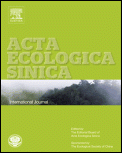
Acta Ecologica Sinica
Cultivating insights in ecology and environmental stewardship.Acta Ecologica Sinica, published by Elsevier, is a prominent journal in the field of ecology, with a strong focus on fostering understanding in ecological principles and their applications. Established in China, this journal holds an impressive Q2 categorization in both Ecology and Ecology, Evolution, Behavior and Systematics as of 2023, positioning it within the top tier of ecological research. With its Scopus rankings placing it in the 81st and 78th percentiles in relevant ecological domains, it serves as a vital platform for researchers and practitioners to disseminate findings that promote ecological sustainability. Although it operates under a traditional access model, its significant impact is underscored by its systematic convergence of key ecological inquiries across multiple years (2006-2008, 2014, 2017-2023). By engaging with the latest empirical studies, theoretical advancements, and methodological innovations, Acta Ecologica Sinica is indispensable for scholars dedicated to advancing ecological knowledge and addressing environmental challenges.

Revista Agrogeoambiental
Championing Open Access for Environmental ResearchRevista Agrogeoambiental is a prestigious open-access academic journal dedicated to the field of agricultural and environmental sciences. Published by INST FEDERAL SUL MINAS GERAIS-I FSULDEMINAS since 2009, this journal stands as a vital forum for the dissemination of research findings, innovative methodologies, and interdisciplinary studies that address critical issues in agriculture and environmental sustainability. With a focus on promoting knowledge exchange among researchers, practitioners, and educators, Revista Agrogeoambiental seeks to enhance understanding of agroecological systems and their interaction with geospatial frameworks. As an open-access journal, it ensures that cutting-edge research is accessible to a wide audience, thereby fostering collaboration and knowledge-sharing in the global academic community. Researchers and professionals can benefit from the journal's commitment to high standards of scholarship, as well as its role in shaping policy and practice within the agricultural and environmental sectors.

ENVIRONMENTAL ENGINEERING SCIENCE
Leading the charge in pollution control and waste management.ENVIRONMENTAL ENGINEERING SCIENCE is a leading journal published by MARY ANN LIEBERT, INC that provides a platform for pioneering research in the fields of environmental chemistry, pollution control, and waste management. With an ISSN of 1092-8758 and an E-ISSN of 1557-9018, this peer-reviewed journal aims to disseminate high-quality scientific studies that address critical environmental challenges. As evidenced by its 2023 category quartile rankings, it holds a notable position at Q3 in Environmental Chemistry and Pollution and Q2 in Waste Management and Disposal, highlighting its relevance and impact in these domains. Spanning over two decades from 1997 to 2024, the journal is dedicated to fostering innovations and promoting rigorous scholarship that can contribute significantly to sustainable environmental practices globally. Authors and researchers are encouraged to engage with this essential resource, which offers Open Access options to enhance the visibility and reach of their work. For those interested in advancing their understanding and practice within the environmental sciences, ENVIRONMENTAL ENGINEERING SCIENCE is an indispensable journal to consider.

Hydrology
Connecting scholars to shape the future of hydrology.Hydrology, published by MDPI, is a prominent open-access journal dedicated to advancing the field of hydrological science. Since its establishment in 2014, the journal has garnered a reputation for excellence, reflected in its classification within the Q2 quartile for 2023 across multiple categories including Earth-Surface Processes, Oceanography, Water Science and Technology, and Waste Management and Disposal. Based in Switzerland, Hydrology provides a vital platform for scholars and practitioners to disseminate research findings, promote innovative methodologies, and foster discussions on current trends affecting water resources and management globally. The journal is easily accessible online and aims to significantly contribute to the understanding of hydrological processes, offering insights that are pivotal for addressing contemporary environmental challenges. With Scopus rankings showcasing its growing influence, Hydrology is a crucial resource for researchers, students, and professionals committed to water science and sustainable practices.
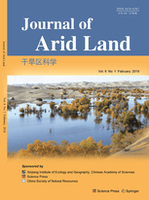
Journal of Arid Land
Illuminating challenges and opportunities in dry environments.Journal of Arid Land, published by SPRINGER HEIDELBERG, is a pivotal platform dedicated to advancing knowledge in the fields of Earth-Surface Processes, Management, Monitoring, Policy and Law, and Water Science and Technology. With an ISSN of 1674-6767 and an E-ISSN of 2194-7783, this journal stands out as a prominent source of scholarly research focusing on the unique challenges and opportunities of arid and semi-arid environments, particularly relevant in the context of global climate change. As of 2023, it holds a commendable Q2 ranking in several critical categories, underscoring its impact in environmental science and related disciplines. The journal, which has been in publication since 2009 and is set to continue through 2024, provides unrestricted access to high-quality research that sheds light on sustainable practices and effective policies. With its focus on arid lands, the Journal of Arid Land plays an essential role in fostering interdisciplinary dialogue among researchers, practitioners, and policymakers striving to address the pressing issues faced by these ecosystems.

WATER AIR AND SOIL POLLUTION
Pioneering studies in environmental sciences for lasting impact.Water Air and Soil Pollution is a leading peer-reviewed journal published by Springer International Publishing AG, focusing on the vital fields of environmental sciences, ecological modeling, and pollution management. Since its inception in 1971, the journal has contributed significantly to advancing knowledge in the interdisciplinary realms of Water Science and Technology, Environmental Chemistry, and Environmental Engineering. With an impressive history, the journal currently holds a Q2 quartile ranking in several categories, reflecting its high impact and relevance in these essential areas of research. Its rankings—such as #95 in Environmental Science: Water Science and Technology—illustrate its standing in the academic community. Researchers and practitioners alike can access a wealth of studies and reviews that aim to address pressing environmental concerns and foster sustainable practices, although the journal is not Open Access. Located in Switzerland, Water Air and Soil Pollution continues to be a critical resource for those dedicated to understanding and mitigating pollution, making it an indispensable tool for anyone engaged in ecological and environmental research.
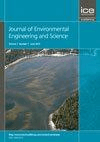
Journal of Environmental Engineering and Science
Unveiling Cutting-Edge Methodologies in Environmental StudiesJournal of Environmental Engineering and Science, published by Emerald Group Publishing Ltd, is a prominent academic platform dedicated to the dissemination of cutting-edge research in the fields of environmental engineering, chemistry, and science. This journal, with ISSN 1496-2551 and E-ISSN 1496-256X, features a comprehensive collection of studies that delve into innovative methodologies and practical applications aimed at solving pressing environmental issues. Having been published since 2002, it spans critical research years from 2015 to 2024, offering insights that are invaluable to both academics and practitioners alike. With its current rankings placing it in the fourth quartile for Environmental Chemistry and Engineering, and the third quartile in miscellaneous Environmental Science, the journal serves as a significant yet under-utilized resource for emerging scholars seeking to contribute to the ecological discourse. Though it does not offer Open Access, the content is meticulously curated to uphold academic rigor, catering especially to researchers, professionals, and students keen on advancing their understanding of environmental challenges and engineering solutions.

Inland Waters
Elevating Understanding of Critical Freshwater IssuesInland Waters, published by TAYLOR & FRANCIS LTD, stands as a prestigious scholarly journal dedicated to the critical examination of freshwater ecosystems and their management. With an ISSN of 2044-2041 and an E-ISSN of 2044-205X, this journal boasts a remarkable Q1 ranking in both Aquatic Science and Water Science and Technology for 2023, reflecting its significant impact in the field. Researchers and professionals can benefit from its comprehensive coverage of cutting-edge research, methodological advancements, and policy implications concerning inland waters. Committed to disseminating valuable knowledge in a vital area of environmental science, Inland Waters aims to foster collaboration and promote innovative solutions for sustainable water management practices. As it continues through its converged years from 2012 to 2024, the journal remains an essential resource for those dedicated to advancing our understanding and stewardship of freshwater environments worldwide.
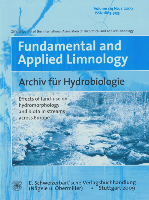
Fundamental and Applied Limnology
Connecting Theory and Practice: Your Resource for Freshwater ResearchFundamental and Applied Limnology is an esteemed academic journal dedicated to the exploration of freshwater ecosystems, bridging the gap between fundamental research and practical applications. Published by E Schweizerbart'sche Verlagsbuchhandlung in Germany, this journal has been a vital resource in the fields of aquatic science and ecology since its inception in 2007. With its ISSN 1863-9135 and E-ISSN 1863-9135, it provides a platform for researchers to disseminate significant findings related to limnology, contributing to a rich understanding of freshwater biodiversity, water quality, and ecological interactions. Although currently rated in the Q3 quartile for aquatic sciences and ecology as per the 2023 rankings, it remains a valuable outlet for interdisciplinary research and practical insights, facilitating critical advancements in environmental management. Open access options enhance its visibility and accessibility, making it indispensable for researchers, professionals, and students alike who are committed to advancing the scholarship in freshwater studies. Engaging with this journal not only opens doors to the latest research findings but also fosters collaboration and innovation in the ecological community.